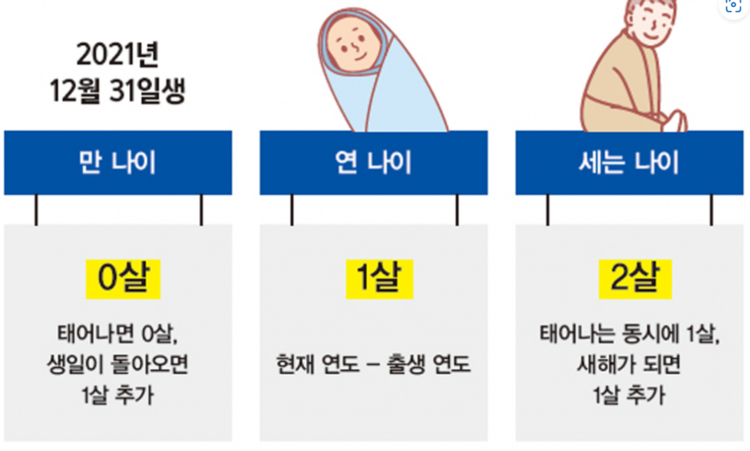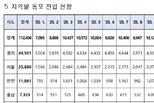
Newsnomics AJAY ANGELINA reporter | South Korea has decided to fragment the so-called "Korean age calculation system" in favor of the internationally recognized age calculation standard.
On Thursday, the revised bills to the civil Act and the General Act on Public Administration about South Korea’s multiple age system to the internationally recognized one, was passed during the plenary session of the National Assembly that will go into effect after six months in June 2023.
Under the new bills, an individual's age will be determined based on their birth date. A newborn baby will be counted as 0-year-old and infants' age will be measured in months until they turn one year old.
The Korean age system currently includes three types. 1) the internationally recognized system,2) the Korean traditional "counting age" system, 3) and third system used for convenience when one's exact birthdate is unknown.
The international age system concludes with the age of zero at baby’s birth and then adds a year on birthdays. According to the Korean age system, a newborn baby's age starts counting one at the day of birth rather than zero, and everyone gets a year older all together on New Year's Day. The third system adds an extra year to a person's age on the very first day of the New Year.
Due to the mixed use of various methods, confusion and occasional disputes have arisen in society, such as when interpreting policies related to labor, social welfare and more recently in the case of vaccine administration.
President Yoon Suk Yeol sought the change to remove the confusion in processing administrative and medical service.
“With the passage of the amendment today, all citizens of our country will become younger by one or two years starting next June,” Yoon’s office said after the bill’s passage.
The public has been on board for dropping the old age calculation system. About to government affiliated survey conducted in September declared 80% respondents wanted to end “Korean age” counting system.
“It would be difficult to find the origin of such practice,” said Lee Gi-jung, a spokeswoman for the Ministry of Government Legislation. “But South Korea is the only one that has been keeping it due to its rank-based society.”










